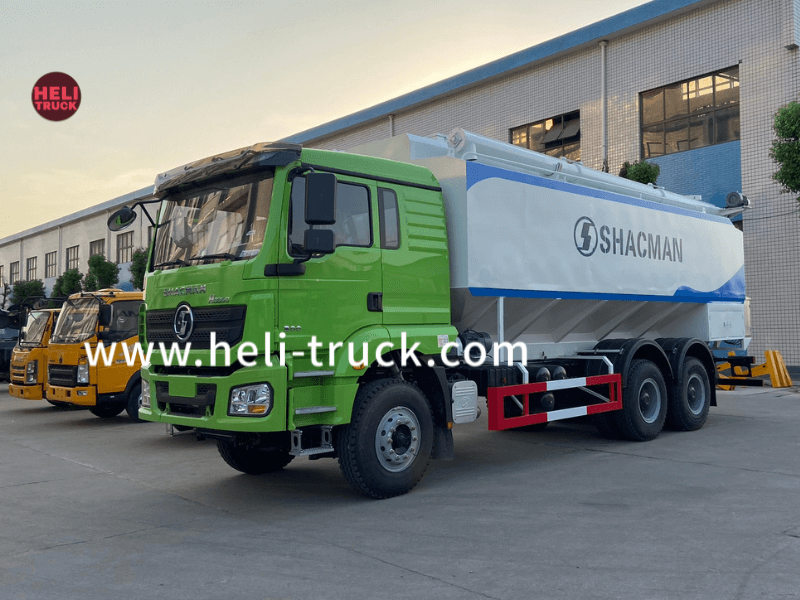The Essential Role of Garbage Compactor Trucks in Community Services
Aprile 7, 2025 0:10 - no comments yetIntroduction:
Garbage compactor trucks play a vital role in maintaining cleanliness and sanitation in our communities. These specialized vehicles are designed to efficiently collect and compact waste, reducing its volume and making it easier to transport to disposal sites. In this article, we will explore the importance of garbage compactor trucks in community services, their key features and functions, and the impact they have on our environment and public health.
Overview of Garbage Compactor Trucks:
Garbage compactor trucks, also known as waste compactors or trash compactors, are a type of specialized vehicle used for collecting and transporting solid waste. These trucks are equipped with a hydraulic compactor that compresses the waste material to reduce its volume, allowing for more efficient collection and disposal. Garbage compactor trucks come in various sizes and configurations, ranging from small rear-loading trucks used for residential waste collection to large front-loading trucks used for commercial and industrial waste management.
Key Features and Functions:
Garbage compactor trucks are equipped with a range of features and functions that make them essential for community services. Some of the key features of these vehicles include:
1. Hydraulic Compactor: The hydraulic compactor is the heart of a garbage compactor truck, responsible for compressing the waste material and reducing its volume. This feature allows the truck to collect more waste before needing to unload, improving efficiency and reducing the number of trips required for waste collection.
2. Sealed Body: Garbage compactor trucks are designed with sealed bodies to prevent leakage and odors from escaping during transport. This helps maintain cleanliness and hygiene in the surrounding areas and reduces the risk of contamination and disease transmission.
3. Automatic Loading Mechanism: Many garbage compactor trucks are equipped with automatic loading mechanisms that make the process of collecting waste faster and more efficient. These mechanisms can include rear-loading bins, front-loading arms, or side-loading compartments, depending on the type of truck and the specific waste collection requirements.
4. GPS Tracking and Monitoring: Some modern garbage compactor trucks are equipped with GPS tracking and monitoring systems that allow operators to track the vehicle's location in real-time and optimize collection routes. This technology helps improve efficiency, reduce fuel consumption, and ensure timely waste collection services.
5. Safety Features: Garbage compactor trucks are designed with various safety features to protect operators and pedestrians during waste collection operations. These features can include backup cameras, warning lights, and audible alarms to alert others of the truck's movements.
Impact on Environment and Public Health:
Garbage compactor trucks play a crucial role in maintaining a clean and healthy environment in our communities. By efficiently collecting and compacting waste, these vehicles help reduce the volume of trash that ends up in landfills, minimizing the environmental impact of solid waste disposal. Additionally, garbage compactor trucks help prevent littering and illegal dumping, which can harm wildlife, pollute waterways, and create unsightly and unsanitary conditions in public spaces.
In terms of public health, garbage compactor trucks play a critical role in preventing the spread of disease and contamination. By collecting waste regularly and disposing of it properly, these vehicles help reduce the risk of pests, bacteria, and pathogens proliferating in our communities. Proper waste management is essential for preventing the spread of infectious diseases and maintaining a safe and healthy living environment for residents.
Community Services and Waste Management Practices:
Garbage compactor trucks are an integral part of community services and waste management practices. These vehicles are used by municipal governments, waste management companies, and private contractors to collect and transport solid waste from residential, commercial, and industrial properties. Refuse Compactor Truck are typically established based on the volume of waste generated, the type of property, and local regulations and ordinances.
In addition to waste collection, garbage compactor trucks are also used for street cleaning, litter removal, and special event cleanup services. These vehicles play a key role in maintaining the cleanliness and appearance of public spaces, parks, and recreational areas, enhancing the quality of life for residents and visitors alike. Proper waste management practices, including the use of garbage compactor trucks, are essential for creating a sustainable and livable community for all.
Challenges and Solutions in Waste Management:
Despite the benefits of garbage compactor trucks in waste management, there are several challenges that communities face in managing solid waste effectively. Some of the common challenges include:
1. Illegal Dumping: Illegal dumping of waste is a significant problem in many communities, leading to environmental pollution, health hazards, and unsightly conditions. To address this issue, communities can implement stricter enforcement measures, increase public awareness campaigns, and provide convenient and affordable waste disposal options for residents.
2. Recycling and Waste Separation: Proper recycling and waste separation are essential for maximizing the efficiency of waste management systems. Garbage compactor trucks can be used to collect recyclable materials separately from general waste, allowing for more effective recycling and resource recovery. Communities can promote recycling and waste separation through education programs, incentives, and convenient recycling facilities.
3. Landfill Capacity: The capacity of landfills is a critical concern for many communities, as limited space and increasing waste generation pose challenges for long-term waste disposal. Garbage compactor trucks can help reduce the volume of waste going to landfills by compacting trash and optimizing collection routes. Communities can also explore alternative waste management solutions, such as composting, anaerobic digestion, and waste-to-energy technologies, to reduce reliance on landfills.
Conclusion:
Garbage compactor trucks play a vital role in community services by collecting and compacting waste efficiently, maintaining cleanliness and sanitation, and protecting the environment and public health. These specialized vehicles are essential for waste management practices in residential, commercial, and industrial settings, ensuring the proper disposal of solid waste and preventing pollution and disease transmission. By understanding the importance of garbage compactor trucks and addressing the challenges in waste management, communities can create a cleaner, healthier, and more sustainable environment for current and future generations.